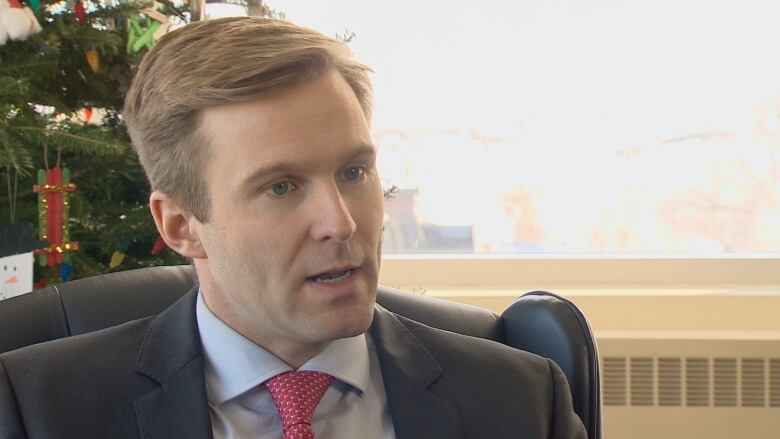New Brunswick-made carbon pricing scheme coming, Gallant says
Exactly when it will come and what it will look like is up in the air

There'll be some form of carbon pricing in place in New Brunswick one year from now, says Premier Brian Gallant.
"My sense would be yes," Gallant said in a year-end interview with CBC News.
That's because the federal government says it will impose carbon pricing on any province that doesn't adopt its own system by 2018. Gallant interprets that to mean Jan. 1, 2018.
- Deal with New Brunswick the latest adventure in federalism for Trudeau
- Will Premier Gallant go with carbon tax or cap-and-trade system?
- Environment minister sidesteps questions on costs of climate plan
But he would not say whether the precise form of carbon pricing would be unveiled in the Liberal government's upcoming provincial budget.
"I don't want to commit to timing at this point," he said, "but I will say 2017 will obviously be a big year for us to discuss with New Brunswickers and develop what we think will be the best made in New Brunswick solution to a price on carbon."
Gallant's climate action plan
Gallant's government released its climate change action plan in December. It includes a carbon price, a phase-out of coal for electricity generation, and a reduction of emissions by 35 per cent below 1990 levels by 2030.
The federal government wants to phase out coal by 2030 but has signed side deals with other provinces to give them more time in return for reducing equivalent emissions in other ways.
New Brunswick hopes to sign a similar deal.
Blames past decisions
When he released the plan, Gallant said that decisions "of the last few decades" had "a negative impact on our environment."
But in the year-end interview the premier would not identify any government decisions that harmed the environment.
He said he wasn't referring to government with the comment. "I was talking as a society," he said.
Asked for an example, he said, "as consumers, in the past, we probably didn't recognize what it meant when we left all the lights on in our homes."
Those individual decisions might seem small but "as you take all of us, it has a collective, significant impact," he said.
Gallant said only vaguely that energy products and natural resources were developed "in a way in the past that we all know we could have done better."
He said the country and the province have "a willingness to learn from our mistakes" and develop energy resources "in a way that's responsible, in a way that's creating jobs, but also in a way that's mitigating the impacts on climate change."
But he wouldn't name any New Brunswick policy decisions that thought were damaging to the environment.
"We know that during the industrial age, there were lots of emissions that were increasing exponentially and that includes Canada, and that includes New Brunswick. So for us transitioning to a low-carbon economy is an important initiative."

